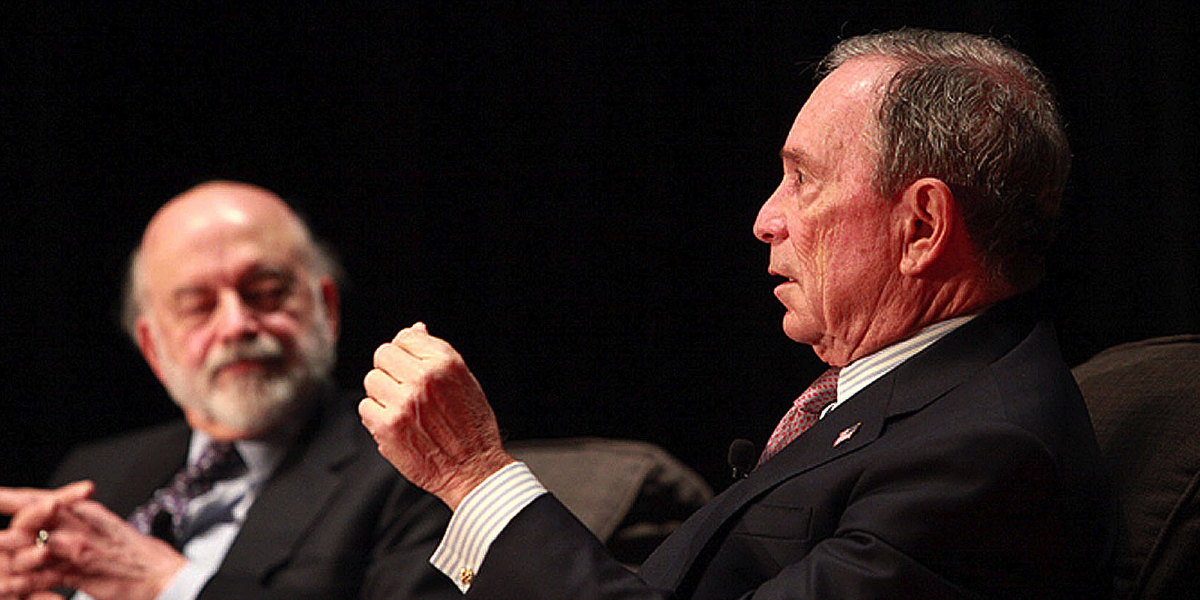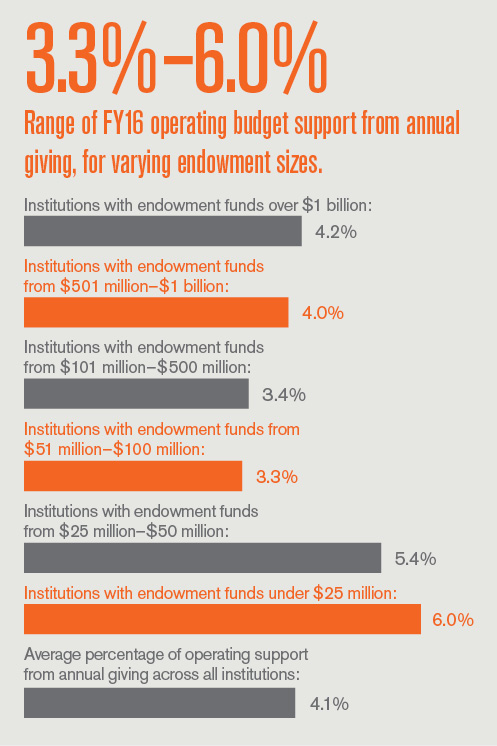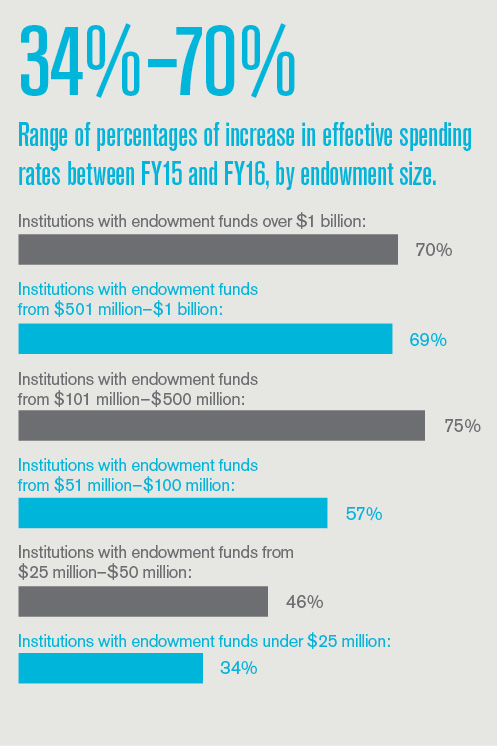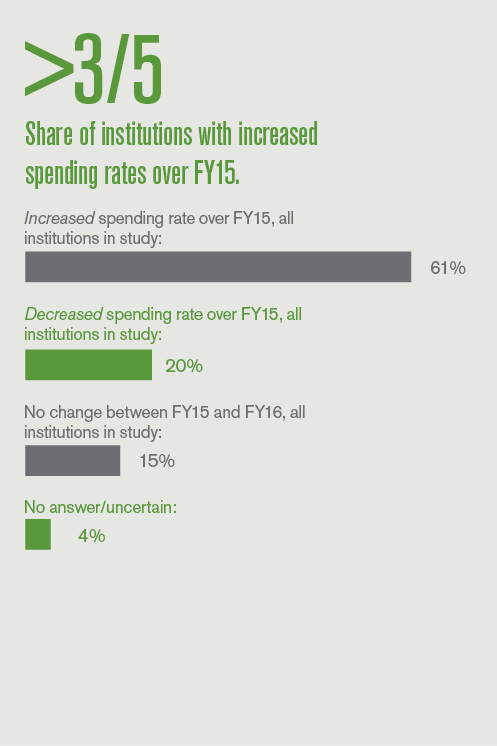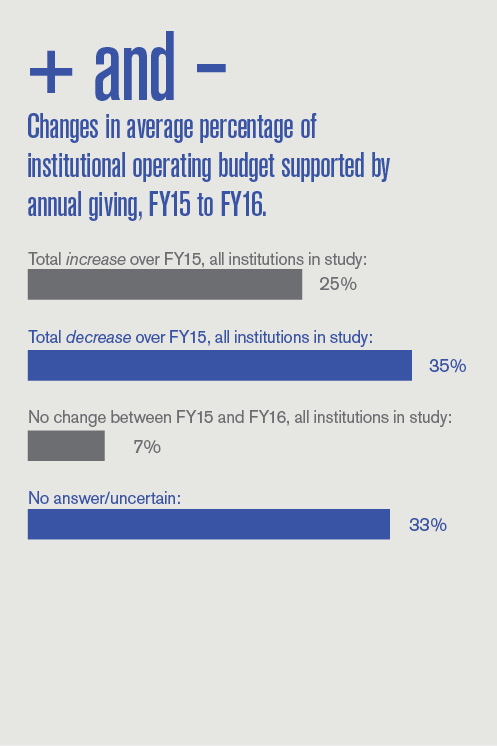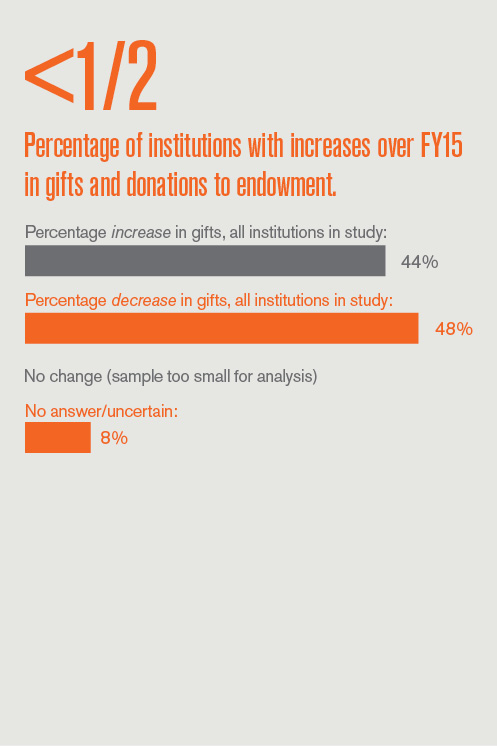The former New York City mayor offered a smorgasbord of ideas about education’s economic challenges and solutions, at a recent NACUBO forum.
Attendees of the 2017 NACUBO Endowment and Debt Management Forum enjoyed a wide-ranging conversation with entrepreneur, philanthropist, and three-term former New York City Mayor Mike Bloomberg. Joseph Perella, founding partner and chairman of Perella Weinberg Partners, moderated the discussion, which touched on issues of education, leadership, the economy, and governance. What follows are some of Bloomberg’s musings during that conversation.
Speaking of Education
Higher education leaders should not get stuck thinking education is one thing done one way, argues Bloomberg. Consider former Harvard Business School professor Theodore Levitt, who famously pointed out that the railroads had it wrong thinking that they were in the business of running trains, instead of understanding, more broadly, that they were in the transportation business. As a result, the railroads lost major ground when airplanes and automobiles came along and redefined passenger transit. The same danger is ever-present for higher education, suggests Bloomberg.
Know your color of the rainbow. Understand the broad spectrum of education even while you identify your niche and the particular need it fills, says Bloomberg. Do you exist to educate the next Nobel Prize winner who will cure cancer, or to help more young people become well-rounded human beings, or to match large groups of kids with adults who can teach them the skills they need to make a living?
As a nation, we made a huge mistake decades ago when we started closing vocational programs under the assumption that it pigeonholes students, says Bloomberg.
Match demand with supply. A related problem that higher education must solve is bridging the gap between supply and demand, suggests Bloomberg. On the supply side, more kids want to go to college than have the opportunity, but too many don’t know about the great institutions that exist, how to apply, or that aid may be available to them. On the demand side, many universities and colleges want greater diversity among their student populations but don’t know how to attract diverse students or how to help them succeed. This includes encouraging students to get out of the comfort zone of their own culture and life experience and equipping them to survive in a world with others who have had either greater advantages or fewer opportunities.
Let students be students. Most of us know how to deal with success. We need to teach students how to deal with failure, argues Bloomberg. And, what better place to test your ideas than while a student—before you enter the workforce where you encounter employment consequences, he posits. The constant coddling, every kid gets a ribbon, and no one gets less than “B” is not preparing students for the real world, argues Bloomberg. For him, safe spaces and trigger warnings are taking education in the wrong direction, because this does not prepare students to survive in a world of micro-aggressions. At the same time, Bloomberg bemoans that educators have stopped teaching civics, American history, and world literature—all of which are vital for understanding how to approach and experience life as a co-citizen of the world.
Seek full value from board members. The enormous preparation required and the range of legal liabilities and responsibilities that can’t be taken lightly may be shocking to those who have never served on a board of trustees, suggests Bloomberg. That said, good governance only results when an organization does everything it can to help its board members succeed. Bloomberg’s foundation includes 20 members representing its diverse areas of focus, including business, the arts, and public health. A foundation employee is assigned to each board member and tasked with managing that relationship, keeping in touch every couple of weeks to update board members on what’s going on, and soliciting their input.
Pick your legislative battles. Bloomberg suggests higher education leaders take a page from the likes of the National Rifle Association. As a single-issue group advocating for gun ownership and gun rights, everything the NRA does on a legislative front stems from that singular issue, he explains. Arguably, the one thing above all else that the higher education sector may do well to impress upon Congress and in policy circles, and to make a case for to the press, is the need to retain deductions for charitable contributions, explains Bloomberg. The value of endowments to sustain institutions—and hence, the need to preserve the ability to continue to receive donations—is all the more important since other sources of funding will continue to waver and likely continue to decrease, argues Bloomberg. This will require more effort by leaders to explain endowment spending, not only to politicians, but also to the public, so that people on the street have a better understanding about what higher education does for individuals and for society.
On Jobs and the Economy
Technology and automation are destroying jobs, states Bloomberg. No one can deny that people and processes have become more productive with technology, and that as a result, fewer people are needed to do the same jobs as in the past. Automation will continue to redefine labor going forward, and because the march toward increased automation and technology innovation will be relentless in the next 10 years, as a society we must find new things for people to do. One antidote that Bloomberg suggests: more technology.
Fight technology with technology. While serving as mayor, Bloomberg oversaw a competition to bring a stronger higher education science and engineering focus to New York City. Cornell University won that economic development contest, beating out proposals from more than 20 institutions to build a new technology-focused campus on the city’s Roosevelt Island. The Cornell Tech campus will officially open in summer 2017, but in the meantime, New York University, Columbia, and Carnegie Mellon are among the city’s higher education institutions that have expanded STEM programming. All this, explains Bloomberg, adds reasons for students not only to come to New York to attend school but to consider staying to start new businesses, which in turn will add to the city’s tax base and increase related employment opportunities for more city residents.
Look beyond infrastructure. Infrastructure is a partial answer to job creation, suggests Bloomberg. Yes, we desperately need new airport runways, and new roads and bridges. But infrastructure itself is not a long-lasting job creation program. We must also look beyond to the new jobs this vastly more efficient—and yes, technology-enabled—infrastructure will support.
Cut the red tape and the time lag. We need to make it easier to start businesses and deliver those products and services more quickly. That said, while reducing unnecessary regulations so that companies can launch more quickly and help create more jobs, it may not always be the regulation itself that is the culprit. An inspection isn’t a bad idea, but the inordinate amount of time you may have to wait for that inspection can sideline opportunities, argues Bloomberg. Sometimes what you need most is to expedite a process.
Demand accountability for learning. We will create more jobs simply by giving students a better education. There is no greater way to hurt poor people than to deny them an education that is useful, explains Bloomberg. Improving public schools starts at the ballot box, he adds. At the state and local levels, citizens must stand up and refuse to continue supporting school officials who fudge the numbers and move students along even when they aren’t learning. No company in this country survives for long without accountability for its products and services, and our schools should be no different, says Bloomberg. As a nation, we must be willing to demand accountability for the most important thing our government does.
Embrace immigration and trade. Despite what some may think, America isn’t an easy place to put your feet up and go on welfare, says Bloomberg. America has always been a competitive society, and one where success is often directly related to how much time you put in. Most people who come to the United States are looking for opportunity and are willing to work very hard to improve life for themselves and their families. The truth is, to grow our economy and prosperity as a nation, we need more immigration and more global trade, Bloomberg believes. A diverse population adds not only to our culture and our cuisine, but it also reinforces the work ethic that allows for our continued success.
Invest in a healthy planet. We are quickly reaching a point where politicians can no longer legitimately claim that climate change doesn’t exist, says Bloomberg. The increase in temperatures and rising sea levels worldwide are alarming and will only continue to bring big changes to our way of life and how we do business—facts that none of us can ignore. While Bloomberg asserts that nothing truly substantial has happened at the federal level, he is heartened that local governments and individual states are making significant strides in cutting greenhouse gas emissions.
That’s also true within the business realm. Every smart business person, notes Bloomberg, understands that it does no good to make and sell a great product if the planet itself is dying and life as we know it is in peril. Endowments and individual money managers are being pressed to prove the environmental responsiveness of their holdings. Donors increasingly want their contributions invested in eco-friendly projects. And, young people recruited for employment want to know where your company or organization stands on climate change before they say, “Yes.”
What the next-generation workforce wants and what big investors aim to deliver are coming together, surmises Bloomberg. As more companies start to join with local governments and activists to do big things, this represents a ray of hope within our current political climate. Bottom line, concludes Bloomberg, none of our job-creation efforts will make any difference if we don’t understand the need to preserve a healthy environment.
Still Hopeful After All These Years
What happens when you pair a longtime entrepreneur with a lifelong environmentalist? Mike Bloomberg and Carl Pope hope it means concrete, viable solutions for addressing climate change that break the partisan divide. Among his varied areas of involvement these days, Bloomberg serves as a United Nations Special Envoy for Cities and Climate Change. Pope is former executive director and chairman of the Sierra Club, a senior climate adviser to Bloomberg, and principal adviser at Inside Straight Strategies, an initiative exploring the underlying economics that link sustainability and economic development. Their forthcoming book, Climate of Hope: How Cities, Businesses, and Citizens Can Save the Planet (St. Martin’s Press, April 2017), provides a prescription for optimistic, bottom-up, pragmatic approaches that seize the opportunities and benefits of taking action to tackle the complex, global challenge of climate change.
KARLA HIGNITE, New York City, is a contributing editor for Business Officer.



